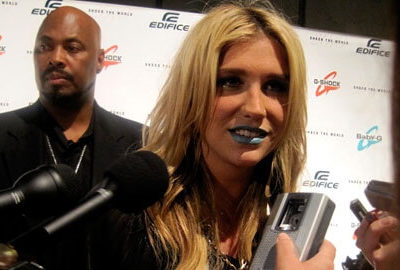While it’s the obvious choice for public relations majors, the field of PR always stands out as a glamorous potential career path for anxious journalism, English and communications students weighing the options on what to do once college comes to an end. Public relations (if you need the dictionary definition of this often hard-to-describe field, it's the management and maintenance of the public image of an organization or individual) is an exciting field, but one with its own unique stresses and challenges.
Who Works in PR?
“Most people see PR as the stereotypical ‘agent’ representing someone famous, or some small firm doing all the ‘face work’ for a large organization. While I do believe that public relations definitely can be both of these things, I really think that it’s exactly what it sounds like: relating to the public,” said Erin Harte, a junior communications major at Wittenberg University. “This can come in the form of advertising, managing, designing – anything really. PR is so versatile that you can do a lot of things with it,” said Harte.
Public relations truly is a multifaceted field, and that versatility lends itself to the hiring employees from all types of backgrounds. Although public relations majors may have a leg up on understanding the ins and outs of the PR world before graduation, anyone whose resume boasts adeptness with words or public speaking can find a place for himself or herself in the industry.
Hear it from An Actual Publicist
Jamie Abzug, the director of publicity at RCA Records, is a perfect example of how someone without a perfectly tailored background in public relations can still make it in the field. Going into her studies at the University of Delaware as an English major, Abzug originally intended to be a writer.
By the time she was looking for jobs though, her resume and work ethic made her an attractive candidate for various types of jobs within the PR field. Now she has led publicity campaigns for celebrities ike Ke$ha, Mike Posner and Kelly Clarkson.
“In my experience, I don’t think that [what you majored in] matters as much as others might feel. It wasn’t until after I graduated college that I even became aware of what a publicist really is, so to me, it is very much a learn-on-the-job type of experience,” Abzug said. “I think that no matter what your major is in college, if you’re interested in something there are always additional opportunities to learn more about it and seek it out.”
Internships can be a crucial factor in getting one’s foot in the door at any PR firm. While the industry itself is projected to grow faster than many others over the next ten years, plenty of competition is expected for entry-level positions. Having an internship with even a small, independent public relations firm can make the difference between landing the interview and never hearing back from a prospective employer.
“Interning is your best friend,” said Abzug, who interned at an assortment of publications and record labels – including Rolling Stone and Virgin Records – throughout her four years at Delaware. “Not only do you forge relationships, but you get to realize before you even have to get a job what you like and what you don’t like, so that when it comes time to look for an opportunity … you get to sit in that meeting with HR or with your future boss and explain to them the things that you’re really interested in, because you have a little bit of experience already and you’re not so green,” she added.
What It’s Really Like
Spending that extra time building one’s resume while still in school is worth it. The median annual earnings for PR managers can be upwards of $89,000 per year, higher than the mid-career salaries of many other common careers for which marketing, public relations, communications and English majors are often recruited. While entry-level PR salaries come in at around $28,000 per year, finding “in-house” public relations jobs within a corporation or organization is often much more profitable and provide opportunities for advancement.
While the high paycheck is a definite draw, the work environment for public relations professionals can be hectic. Irregular, atypical hours and last-minute travel requirements add to the challenge of working as a publicist, but if you’re a natural communicator who can maintain positive, fluid relationships with co-workers, members of the media and potential clients, public relations just might be the place for you.
There is an element of excitement with PR, as publicists are often asked to attend events with celebrities like the Grammys, but at the end of the day its still a part of a publicist’s on-the-job responsibilities.
“The idea of glitz and glamour is a bit of a myth,” said Abzug. “Sure, I get to go [to] award shows and I get to go on red carpets and fun parties, but I’m not there as the guest. I’m there to make sure the artist who was invited there has a successful evening. It’s not about you – it’s never about you – as a publicist,” she said.
Despite the fact that the glamour people see in public relations might be over-emphasized, it’s still a great industry that any people-person would be fortunate to get into.
“Work can be cool and that’s the big thing, said Abzug. “Just because it’s work doesn’t mean it has to be un-fun. I like my job. At the end of the day, I really like what I’m doing.”



















